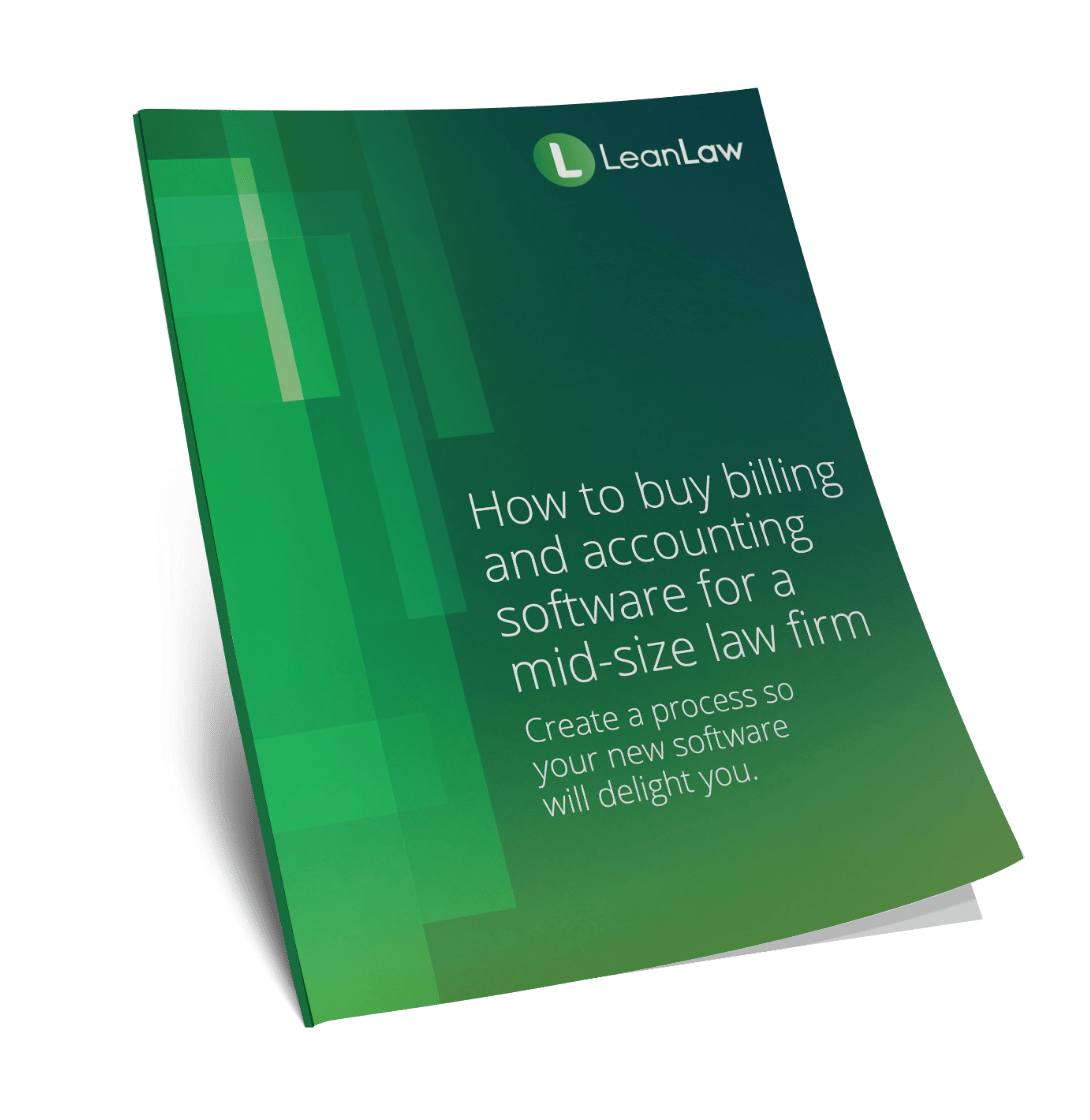
Practicing law is all about rules.
From adhering to legal statutes and regulations to following courtroom procedures, lawyers are well-versed in navigating and applying rules in their professional lives.
However, it’s not just the rules of the legal system that lawyers need to master.

Key Takeaways
- Lawyers and law firms have to follow many specific rules and regulations to maintain the integrity of their practice and ensure compliance with legal and ethical standards.
- In order to follow those rules and regulations, a law firm must implement strong practices that promote compliance and accountability.
- Staying compliant with the rules and regulations surrounding trust accounting is made significantly easier when a specific software system is adopted that addresses the unique needs of this critical aspect of practicing law.
Every lawyer knows that trust accounting is an integral part of the practice of law.
But not all know how to do it correctly.
Trust accounting rules govern how client funds are managed, safeguarded, and accounted for, placing a significant emphasis on accuracy, transparency, and accountability. As lawyers, it is paramount to understand and abide by these rules to protect the interests of clients, maintain professional credibility, and mitigate legal and ethical risks.
Though trust accounting rules and regulations can vary from jurisdiction to jurisdiction, there are certain requirements that are universally seen as best practices (and definite must dos.)
Let’s look at the top ten.
Ten Rules for Trust Accounting that Every Lawyer Needs to Know
Understanding the essential trust accounting rules is not only a lawyer’s legal obligation but is also a fundamental step towards building trust with your clients and maintaining the reputation of your law firm.
By familiarizing yourself with some of the most important and universal rules, you can enhance your firm’s financial management practices, safeguard client funds, and ensure compliance with legal and ethical obligations.

Whether you are a seasoned attorney or you are just starting your legal career, learning and following the following rules will not only help your firm succeed and grow, but it will keep you from finding yourself in a legal situation you don’t want to be in.
1. Always segregate your client funds: One of the fundamental principles of trust accounting for law firms is to keep client trust funds in a separate account from any of your firm’s operating account funds. Always remember that no matter what the money is for (settlement funds, retainer funds or court expense funds) any money that is held in your client trust accounts should never be used for any sort of operating purposes, even if you plan to pay back the client’s trust account. Establish accurate and detailed records for each separate trust account and maintain meticulous records of deposits, withdrawals, and interest earned, always showing that those funds have been set aside separate from your law firm’s funds and are not being used to pay rent, utilities, payroll, etc.
2. Document all transactions: Every transaction involving client funds must be thoroughly documented and is an important step toward maintaining compliance. Again, this can be addressed by keeping detailed records of receipts, disbursements, transfers, and any other financial activity related to the trust account. Certain types of legal accounting software, like LeanLaw, can make this process significantly easier, as it is software that was designed for this specific purpose. But regardless of how you decide to do it, documentation is essential for transparency, accountability, and potential audits.

3. Regularly reconcile all accounts: By conducting regular reconciliations, lawyers and/or their accounting staff can identify any discrepancies or errors promptly and take corrective measures to fix them before the situation worsens. Three-way reconciliation is an essential aspect of this process, which involves matching the individual client ledger balances, the aggregate total of client ledger balances, and the total balance in the trust bank account. This type of accounting will ensure that the account balances are accurate, will identify any discrepancies, and can help to alert you of any unauthorized transactions or errors.

Step-By-Step Process for Attorneys & Law Firmsto Buy Law Firm Software
Understand who needs what and prioritize features as you investigate new software. Download Buyers Guide eBook4. Invest in strong and easy-to-use trust accounting software: Take you time to check out and then invest in reliable trust accounting software specifically designed for law firms. Trust accounting software will not only automate various tasks and improve accuracy, but it will also provide excellent reporting capabilities which will streamline your trust accounting processes and make them easier for everyone to understand.
5. Maintain client ledgers: Each client trust account should have an individual ledger that records all the transactions related to that specific trust account. This ledger should include details such as the date a transaction is made, the purpose of the transaction, and the amount of each transaction. This type of legal trust accounting will ensure a comprehensive and up-to-date record of every trust account is kept and will be something that can easily be referred to if there is ever a problem. The right trust accounting software can help keep accurate records organized and up-to-date.

6. Preserve client confidentiality: Safeguarding client information and ensuring their confidentiality is one of the most important things you do as a lawyer or law firm, and this is never more true than when you have the responsibility to hold client funds. Make sure that you have the type of legal trust accounting system that will appropriately limit access to sensitive data while also maintaining trust accounting compliance as well. You’ll also want to make sure that you implement strong security measures and that you educate your attorneys and entire staff on the importance of maintaining client privacy.
7. Conduct regular internal audits: Conducting internal audits to review your trust accounting practices and identify any potential issues is a very proactive way to stay on top of any potential trust accounting errors or issues. This type of approach will help to identify any errors or discrepancies early on and will allow you to rectify them promptly and prevent potential compliance issues down the road. This is another area where the legal trust accounting software can make a big difference, since it can help automate regular audits and be set up to quickly alert you when a problem arises.
8. Stay compliant with regulations: It’s important to do all you can to stay up to date with the legal and regulatory requirements related to trust accounts in your jurisdiction. Not only should you familiarize yourself with local, state, and federal rules and regulations governing trust accounting but you should also make sure to be prepared to make changes to your trust account best practices when and if it’s necessary to do so.
9. Stay compliant with ongoing education and training: One of the easiest ways to stay informed about changes in trust accounting practices and regulations is going to be through continuous education and training. From attorneys to bookkeepers to accounting staff, keeping anyone involved in the fiduciary obligations of trust accounting updated and aware of their responsibilities will go far in making sure your firm is on top of any changes in trust accounting basics in your jurisdiction.
10. Do independent audits: Periodically engage an independent auditor to conduct a thorough review of your trust accounting practices. An independent audit provides an unbiased evaluation of your processes and can offer valuable insights and recommendations for improvement.
Adhering to the ten essential rules of trust accounting is crucial for maintaining the financial integrity of your law firm.
By segregating client funds, documenting transactions, using trust accounting software, conducting regular reconciliations, and ensuring compliance with regulations, you can establish a robust trust accounting system.
Schedule a demo
Remember, trust accounting is not just about financial management—it’s about building trust with clients and upholding the legal and ethical standards of the legal profession.
By following these rules, you can protect your firm’s reputation, mitigate risks, and provide a solid foundation for financial integrity in your practice.
If you’d like to learn more about what LeanLaw can do for your law firm’s trust account needs, reach out to us today. Let us help you simplify the trust accounting process with the best accounting software on the market today.




